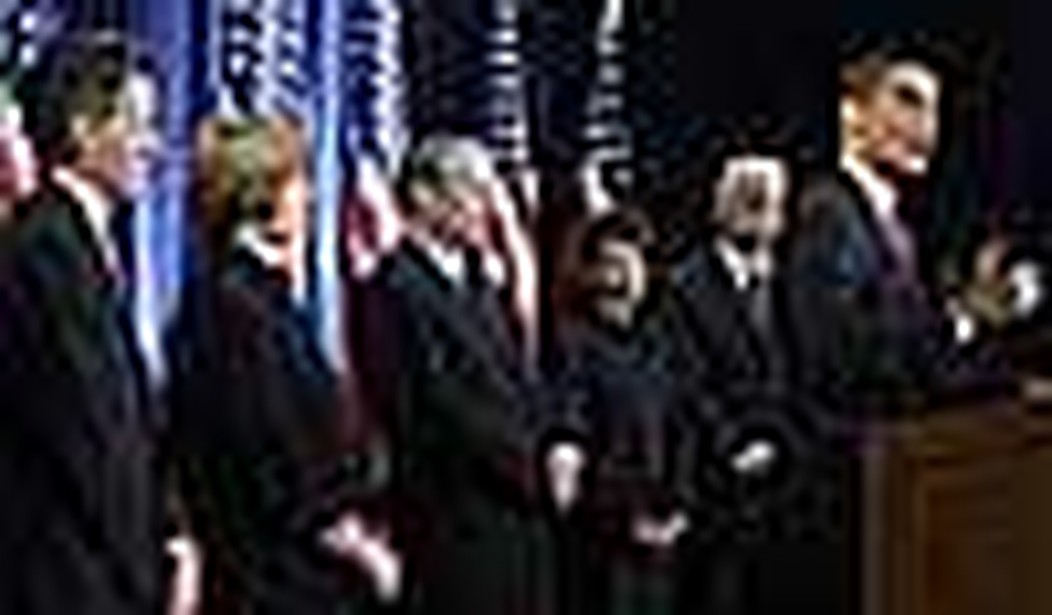After a three week skid of the stock market following his election, President-elect Barack Obama rolled out his economic team. As expected, New York Federal Reserve President Tim Geithner was named as Treasury secretary and former Clinton Treasury chief Lawrence Summers was named to head the President’s National Economic Council. Melody Barnes was named to the Domestic Policy Council spot and Christina Romer was appointed to head the Council of Economic Advisors. (New Mexico Governor and former U.N. Ambassador and Energy Secretary Bill Richardson is rumored to be up for commerce secretary and will be officially named later.)
Geithner has been front and center in the current economic crisis, advocating greater government involvement but also weighing in against a plan to rescue Lehman Brothers, whose demise many credit for a severe worsening of the financial collapse. He will insure a smooth transition from the current administration in oversight of the widely-flung government rescue efforts. However, he does not offer any significant background in trade or tax policy.
Summers is equally well-schooled in crisis management, having worked to overcome concerns of his former boss, Treasury Secretary Robert Rubin, and devise a rescue plan for the Asian financial crisis in the 1990s. He has consistently advocated big, bold, and expensive government stimulus efforts.
His selection won’t be universally hailed. Women’s groups were infuriated when, as president of Harvard, he posited that gender differences might play a part in the number of women in the science professions. (He was later forced out of his post but remains the the Charles W. Eliot University Professor.) Liberals are not pleased with some aspects of his economic track record either. CNN reported:
Summers’ critics contend he played a role in the current financial crisis. They cite, among other things, his support for the Commodity Futures Modernization Act, which allowed many derivatives – like the credit default swaps that have rocked markets this fall — to go unregulated.
Nevertheless, whatever baggage he brings won’t weigh him down significantly. His position is not subject to Senate confirmation — which explains perhaps why he was placed in this role rather than Treasury.
Richardson, often out on the short list for secretary of state, will have to settle for a spot often the bailiwick of presidential friends and allies (e.g., Don Evans, Mickey Cantor) and a showcase for ethnic diversity (e.g., Ron Brown, Carlos M. Gutierrez). Putting Richardson at Commerce fulfills both without violating the Peter Principle (i.e., by keeping him out of a key national security role).
These selections will be hailed as “centrist” and “experienced.” What is certain is that they will show no hesitation in using the full force of the federal government to intervene, regulate, and direct the economy. They are anxious to craft and implement President-elect Obama’s far-reaching plans — a 21st Century WPA — to employ millions on government works projects and “green” industrial development. As Tom Bevan put it:
So Americans can expect to continue to see their government engaged in the political equivalent of a Chinese fire drill, running to and fro throwing vast sums of money anywhere they think might help stave off further economic pain.
On trade, neither Geithner nor Summers seems inclined to pull up the drawbridge and go down the protectionist road. Ever since the Democratic primaries ended, Obama has curtailed talk of calling a halt to the bipartisan era of free trade, suggesting this was all “overheated and amplified” rhetoric. With this contingent of advisers, it looks increasingly likely that he will not follow through on talk of withdrawing from NAFTA. However, it remains to be seen whether these advisers will press for ratification of the Colombian and South Korean free trade agreements.
What does this portend on tax policy? Buzz has begun that the Obama administration might not be so anxious after all to raise taxes on anyone in a recession and might instead reap the benefits of the Bush tax cuts through 2010. John McCain will enjoy a big “I told you so” — and the rest of the country can avoid an ill-conceived plan to hike taxes on investors and small businesses. Nevertheless, in a halting answer during his press conference, the President-elect continued to harp on his campaign pledge of a tax cut for 95% of Americans and to urge that the rich could pay more, while leaving open the possibility that the Bush tax cuts might simply expire on their own in 2010. (The market dove as he spoke on this topic.)
On that front, it is of interest that President-elect Obama also named University of California at Berkeley economics professor Christina Romer to chair the Council of Economic Advisers. One area of her expertise, ABC news reports, is “how tax cuts can help stimulate economic growth.”
Obama did throw a bone to the Left by naming Melody Barnes to head his Domestic Policy Council. As former chief counsel to Sen. Ted Kennedy and policy guru from the liberal Center for American Progress, she will coordinate health care and other key domestic initiatives.
In total, this array of figures suggests that robust government intervention and huge spending will be front and center in the Obama administration’s economic agenda. By characterizing the current situation as an “economic crisis of historic proportions,” Obama clearly set the stage for a period of ultra-activism by the federal government. Whether that is a successful strategy for digging out of the economic slump remains to be seen. But if that is accompanied by an ongoing commitment to free trade and adherence to the Bush tax cuts in the near run, the worst aspects of candidate Obama’s campaign rhetoric may be left on the campaign trail.
It is not the personnel or the policies which fiscal conservatives would have selected, but they lost after all. As with other staffing choices, they can at least say of this group: it could have been worse.









Join the conversation as a VIP Member